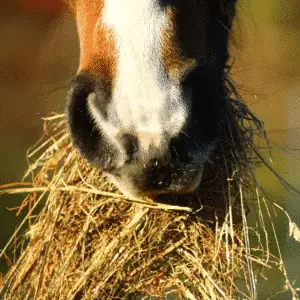
Is unlimited hay good for my horse?
Expert Advice: Kim Lina Pethahn, an independent feed consultant, wrote this article. Having hay available
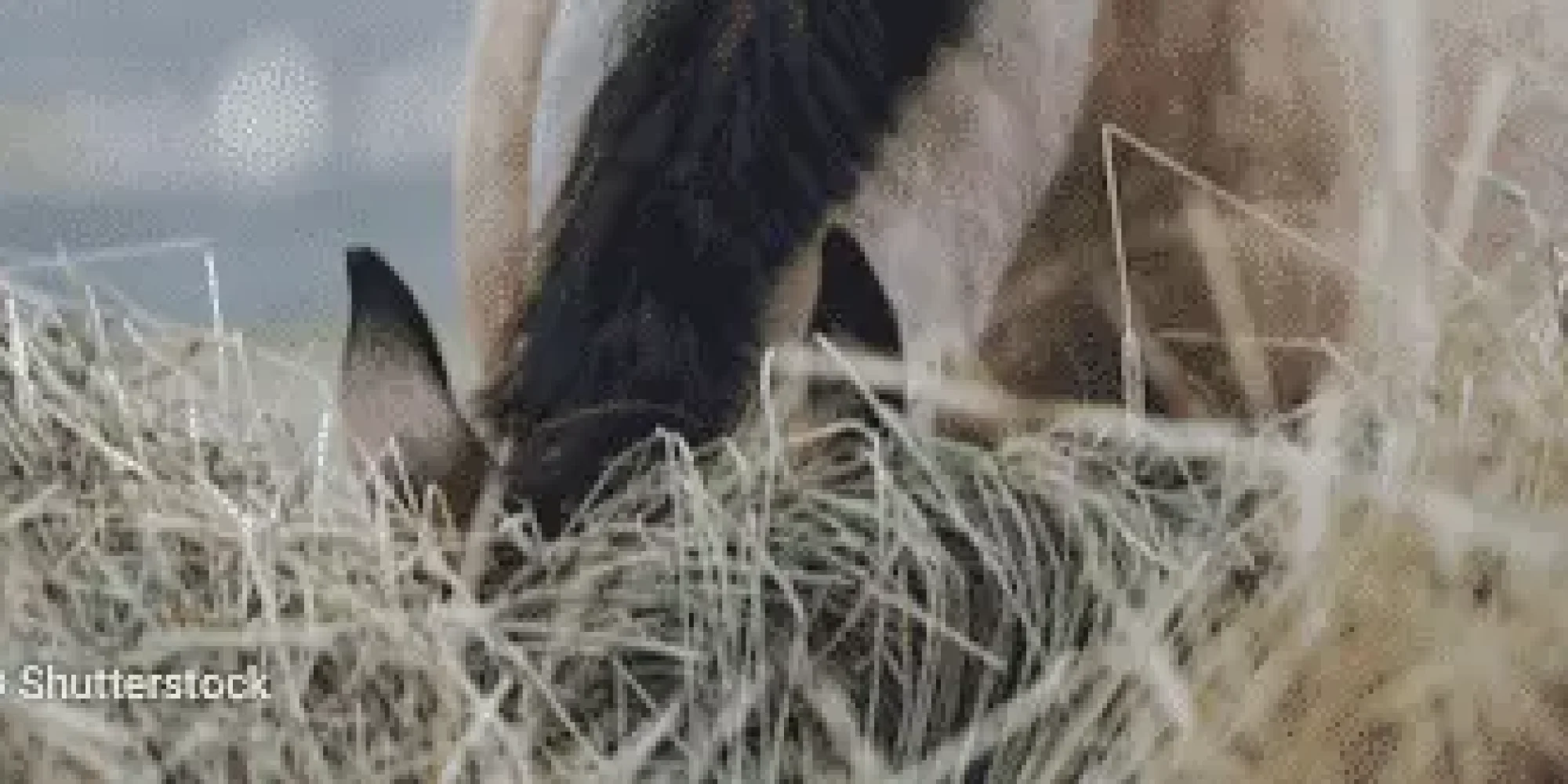
Due to the low levels of enzymes, it is difficult for horses to break down starches from their feed, that’s why they feed on forage/roughage. 70% – 100% of horses daily feed rations consists of forage: grass, hay, haylage, alfalfa or beet pulp. In many respects, hay is considered to be the main forage for horses.
A special characteristic, in contrast to other types of forage, is the high proportion of raw fiber and its coarse structure, which resembles the original nutrient-poor feed of wild horses.
Hay, with its structure, stimulates chewing behavior and thus in turn serves for insalivation, which promotes the formation of gastric and digestive juices. In addition, its structure serves a regulated transport through the intestine and stimulates intestinal peristalsis, which would not be possible with low-structure forage, such as young grass or high amounts of grain, in the ration.
The horse draws its energy from the raw fiber, the skeletal substance of the plant. Raw fiber includes cellulose, hemicellulose, pectin and lignin. The horse is able to utilize these substances in the large intestine with the help of bacteria. A horse has a raw fiber requirement of about 2-3 kg per day. Crude fiber is important for an active gut and good intestinal health. Lack of crude fiber makes digestion sluggish. Younger grass and hay low in crude fiber, or high amounts of concentrates combined with too little hay, are detrimental to intestinal flora and gut health. From a length of about 30 cm, hay is so rich in crude fiber that it optimally supports the horse’s intestinal health.
For Example:
In one kilo hay there are about 200 – 300 g of raw fiber. On the other hand, one kilo of straw contains about 400 grams, and short, freshly grown grass contains just 30 – 40 grams of raw fiber. A horse would therefore have to eat 60 kilos of grass or 12 kilos of hay to cover its raw fiber requirement.
This example is based on ideal grass or hay and on a 600 kg horse.
Download the app and try all premium features 7 days for free!

Expert Advice: Kim Lina Pethahn, an independent feed consultant, wrote this article. Having hay available
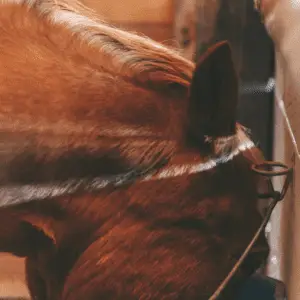
Expert Advice: Kim Lina Pethahn, an independent feed consultant, wrote this article. Valuable and Nutrient-Rich
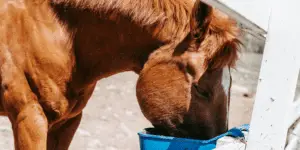
Minerals are of vital importance for horses to ensure health and optimal performance. They play

Vitamins are not only important for us humans, but also for your horse. That’s why
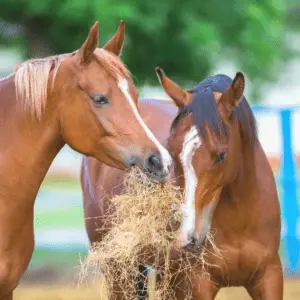
Expert Advice: Kim Lina Pethahn, an independent feed consultant, wrote this article. The Nutritional Benefits
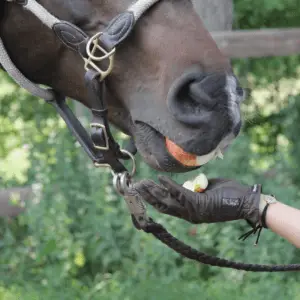
DIY treats for horses are a tasty and healthy alternative to the store-bought snacks found